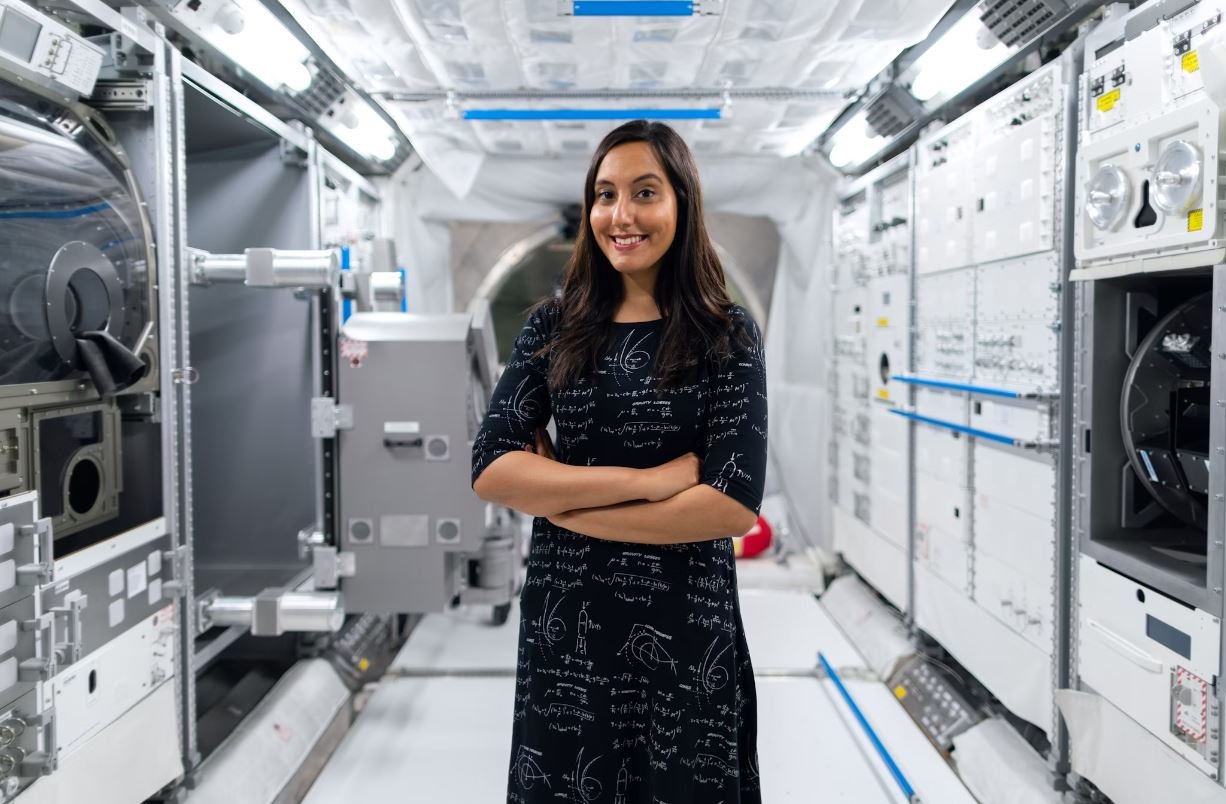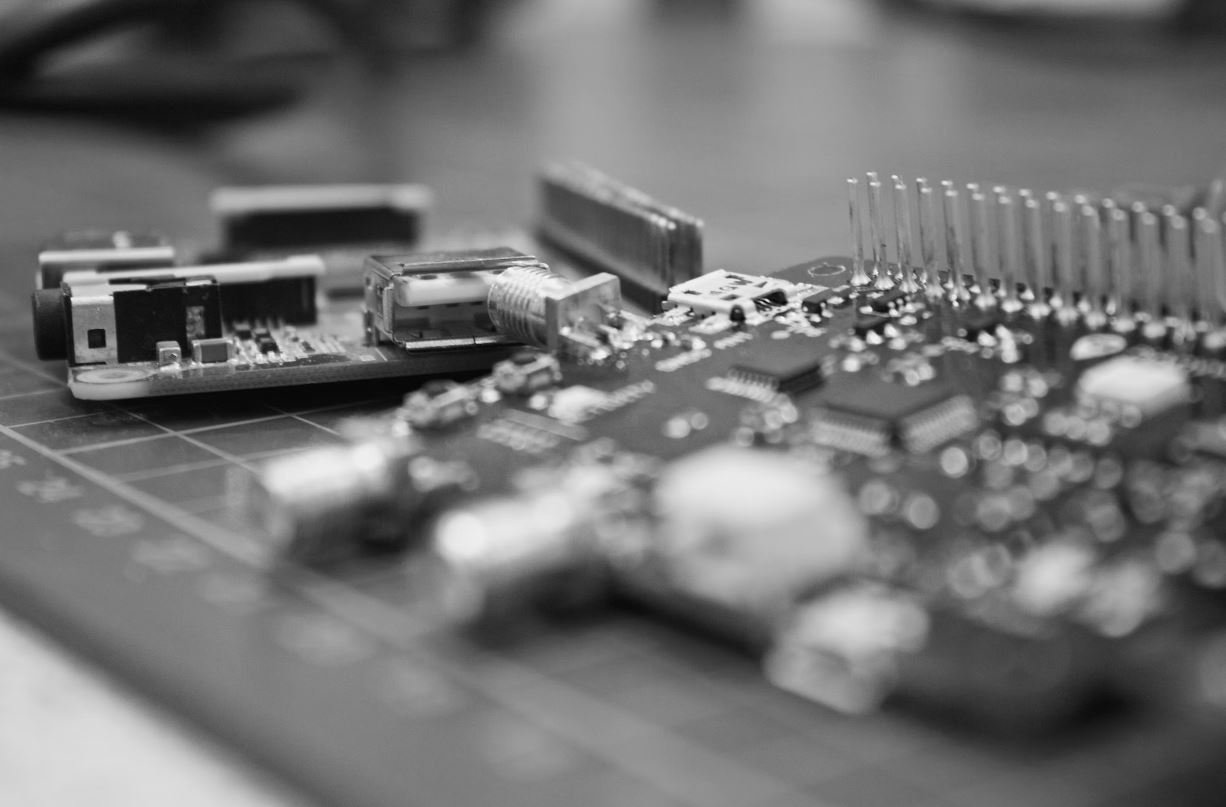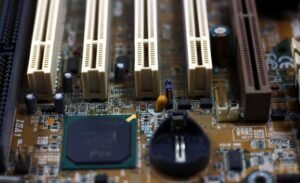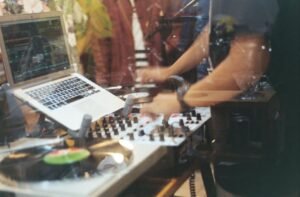How AI Songs Are Made
Artificial Intelligence (AI) has made significant advancements in various fields, including music production. With the help of deep learning algorithms and neural networks, AI systems are now capable of composing and producing songs. AI-generated music has gained popularity in recent years, with artists and music enthusiasts exploring its potential. In this article, we will dive into how AI songs are made and the impact they have on the music industry.
Key Takeaways:
- AI-generated music is created using deep learning algorithms and neural networks.
- AI can compose original songs and mimic various music styles and genres.
- Human input and creativity play a crucial role in refining AI-generated music.
- AI songs have the potential to revolutionize the music industry, but the essence of human emotion and creativity remains irreplaceable.
The process of creating AI songs begins with training AI models using vast amounts of existing music data. These models learn the patterns, structures, and characteristics of different music genres, allowing them to generate new compositions. AI systems analyze melodies, chord progressions, lyrics, and even timbre variations to understand the elements that make up a song.
*AI models learn the patterns, structures, and characteristics of different music genres.
Once trained, AI systems can generate original music compositions by combining and manipulating these learned elements. They can create melodies, harmonies, and even lyrics based on the input provided.
*AI systems can generate original music compositions by manipulating learned elements.
To ensure the quality and creativity of AI-generated music, human input and creativity come into play. Music producers and composers work alongside AI systems to refine and enhance the generated compositions. They curate, modify, and select the most promising outputs, transforming them into finalized songs with human touch.
*Human input and creativity refine and enhance the generated compositions.
The Impact of AI Songs on the Music Industry
AI-generated music has the potential to revolutionize the music industry in various ways. Here are a few notable impacts:
- Increased production efficiency: AI can assist in speedier creation of music, potentially reducing production time and costs.
- Diverse music styles: AI systems can mimic various artists and genres, expanding the range of music available to listeners.
- Personalization and recommendations: AI algorithms can analyze listener preferences to provide personalized music recommendations.
AI Song Generation vs. Human Composition – A Comparison
| AI Song Generation | Human Composition |
|---|---|
| Can produce compositions at an incredibly fast pace. | Requires time and effort to compose music. |
| Can explore vast musical possibilities based on learned patterns. | Relies on human creativity and imagination. |
| Possesses the ability to generate music in multiple styles. | May be more limited in musical diversity. |
Current Applications of AI-Generated Music
The potential applications of AI-generated music are expanding across the music industry. Some prominent uses include:
- Background music for videos and advertisements
- Soundtracks for movies and video games
- Music composition tools for songwriters and composers
- Personalized playlists and music recommendation systems
Future Possibilities and Limitations of AI Songs
While AI-generated music presents exciting possibilities, it also has its limitations. Here are a few factors to consider:
- Emotional depth: AI songs may lack the genuine emotional depth and connection that human-composed music can achieve.
- Ethical considerations: Intellectual property rights and ownership are crucial issues surrounding AI-generated compositions.
- Human-audience preference: Music enthusiasts and listeners often prioritize music created by human artists, based on emotional resonance and authenticity.
AI-generated songs have already made their mark in the music industry, but they do not mark the end of human creativity. The fusion of AI and human input in music creation has led to new possibilities, expanding the boundaries of what is musically achievable. As AI continues to evolve, we can expect further advancements and exciting collaborations between humans and machines.

Common Misconceptions
1. AI Songs Are Created Completely from Scratch
One common misconception about AI songs is that they are created entirely from scratch by artificial intelligence programs. However, the reality is that AI technology is used primarily as a tool to assist in the song-making process. It helps with generating melodies, suggesting chord progressions, and even adding effects, but the final composition often requires human intervention and creative input.
- AI is mainly used to assist in the song-making process.
- Human intervention is crucial in finalizing the song composition.
- AI can be a valuable tool for generating melodies and suggesting chord progressions.
2. AI Songs Lack Emotional Depth
Another misconception is that AI-generated songs lack emotional depth and that they only produce mechanical and soulless compositions. While it is true that AI programs are not capable of feeling emotions as humans do, they can analyze vast amounts of music data and mimic various styles and moods. With the right programming and training, AI can produce emotionally engaging songs that resonate with listeners.
- AI programs can analyze vast amounts of music data.
- With the right programming, AI can mimic various styles and moods.
- AI songs can be emotionally engaging and resonate with listeners.
3. AI Songs Put Musicians Out of Work
Many people fear that the rise of AI-generated songs will replace human musicians and put them out of work. However, this is not entirely true. While AI can generate melodies and chord progressions, it cannot replace the intricate and expressive playing of skilled musicians. In fact, AI technology is often used by musicians as a creative tool to enhance their compositions and explore new ideas.
- AI-generated songs cannot replace the intricate playing of skilled musicians.
- AI technology is used by musicians as a creative tool.
- AI can enhance compositions and help musicians explore new ideas.
4. AI Can Only Produce Pop Music
There is a misconception that AI can only produce pop music and that it lacks the ability to create songs in other genres. While AI technology has been highly utilized in pop music production due to its repetitive and theory-based nature, it is not limited to just one genre. With the right programming and training, AI can create compositions in various genres such as classical, jazz, electronic, and even experimental music.
- AI technology has been highly utilized in pop music production.
- AI can create compositions in various genres with the right programming.
- Genres like classical, jazz, electronic, and experimental music can be explored by AI.
5. AI Will Replace Human Creativity in Songwriting
One of the biggest misconceptions is that AI will eventually replace human creativity in songwriting. While AI technology has shown impressive capabilities in generating music, it is unable to replicate the unique human touch and the deeply personal experiences that inspire songwriters. Human creativity is a complex and multi-faceted process that involves emotions, culture, and personal perspectives, making it highly unlikely that AI can fully replace it.
- AI cannot replicate the unique human touch in songwriting.
- Human creativity involves emotions, culture, and personal perspectives.
- AI is unlikely to fully replace human creativity in songwriting.

Introduction
In recent years, artificial intelligence (AI) has made significant advancements in various fields, including the creation of music. AI songwriters use cutting-edge algorithms to compose music that engages and captivates audiences. In this article, we explore ten fascinating aspects of how AI songs are made, showcasing the impressive capabilities of this technology.
Table 1: Evolution of AI Music
Over the years, AI music has rapidly evolved, reflecting advancements in technology and AI algorithms. This table highlights the progression of AI music from its early stages to the present day.
| Year | Milestone |
|——|——————————————————|
| 1951 | The first computer-generated music created by Ferranti |
| 1982 | “Iamus,” the first AI-composed music, by Iannis Xenakis|
| 2016 | Sony’s AI software composes a pop song |
| 2020 | “Dadabots” creates an AI death metal album |
Table 2: Top AI Composing Algorithms
Various algorithms enable AI to compose music that rivals human creations. Below are the top algorithms used by AI songwriters, offering a glimpse into the technicalities behind their productions.
| Algorithm | Description |
|————————-|————————————————————————————————————————————|
| DeepBach | Applies deep learning techniques to compose Bach-inspired music |
| LSTM | Long short-term memory networks excel in remembering and composing long musical sequences |
| WaveNet | A deep generative model that produces raw audio waveforms, allowing for realistic and expressive music synthesis |
| Google Magenta’s NSynth | Uses neural networks to create unique and unseen sounds by interpolating between different instruments and attributes |
Table 3: Popularity of AI Music
The revolutionary nature of AI-composed music has garnered significant attention and popularity. This table reflects the increasing popularity and acceptance of AI songs in various contexts.
| Context | Example |
|——————-|———————————————————————-|
| Concert Performer | “Taryn Southern” performs a concert featuring solely AI-composed songs |
| Streaming Success | AI-composed song “Break Free” reaches #6 on Spotify’s Global Viral 50 |
| Collaboration | Grammy-winning musician Pharrell Williams collaborates with an AI |
Table 4: Emotional Impact of AI Songs
AI music possesses the ability to evoke specific emotions, much like human-composed music. The table below explores different emotions expressed through AI songs.
| Emotion | AI Song |
|———–|———————————————————-|
| Joy | “Happy” by AI-generated pop band “Hikonin Sentai Akibaranger” |
| Sadness | “Lament” by AI composer “Amper Music” |
| Euphoria | “Celestial Lights” by AI-generated artist “Endel” |
Table 5: Genre Diversity in AI Music
AI’s versatility enables it to compose music across various genres. This table showcases some of the genres explored by AI composers.
| Genre | Examples |
|———-|——————————————————|
| Classical | “Daddy’s Car” by AI algorithm “Flow Machines” |
| Jazz | “DeepBach’s Jazz” by AI composer “David Ramírez” |
| Hip Hop | “Say It Ain’t So” – AI-generated hip hop track |
| EDM | AI-produced electronic dance music composition |
Table 6: AI Music and Collaborations
AI music has also found its way into collaborations with human artists, creating unique hybrid productions. The table below highlights successful collaborations between AI songwriters and renowned musicians.
| Collaboration | Artists Involved |
|————————|————————————————-|
| AI + Human Vocals | Taryn Southern and Amper Music unleash “Life on Earth” |
| AI Co-Composers | Pop artist Grimes teams up with AI for “AI Lullaby” |
| AI-inspired Production | DJ and producer Armin van Buuren collaborates with AI |
Table 7: AI Song Composers’ Inspiration
AI songwriters draw inspiration from various sources, contributing to the uniqueness of their compositions. Here, we explore the fascinating sources that influence AI music.
| Inspiration Source | AI Song Composer |
|————————|—————————————————————-|
| Nature | AI composer “Endel” draws inspiration from natural environments |
| Human Compositions | AI algorithm “Jukedeck” analyzes thousands of human compositions |
| Musical Patterns | AI-generated melodies inspired by the works of famous musicians |
| User Preferences | AI software “Amper Music” learns from user input and feedback |
Table 8: Ethical Considerations in AI Music
The rise of AI music also raises ethical considerations and challenges for both creators and consumers. This table explores some of these important ethical aspects.
| Ethical Consideration | Description |
|———————–|——————————————————————–|
| Copyright Issues | Determining ownership and rights when AI helps create music |
| Transparency | Ensuring transparency in AI-generated music to prevent deception |
| Loss of Creativity | Concerns over AI replacing human creativity in the music industry |
| Discrimination | Potential biases in AI-generated music compositions |
Table 9: AI Music and Intellectual Property
Intellectual property rights play a vital role in the era of AI music. This table highlights different perspectives and legal considerations.
| Perspective | Stance |
|———————-|———————————————————————-|
| AI as Co-Author | Arguing for AI’s role as a co-author with rights in the music industry |
| Human Creativity | Emphasizing the importance of human creativity and recognition |
| Collaborative Rights | Proposing shared rights between AI and human creators |
| Updated Legislation | Advocating for updating copyright laws to address AI-generated music |
Table 10: AI Music Achievements
AI songwriters have accomplished remarkable achievements, pushing the boundaries of what is possible in music creation. This table showcases noteworthy accomplishments in the field.
| Achievement | AI Song Composer |
|———————–|——————————————————-|
| Album Release | “Hello World,” the first AI-composed full-length album |
| Songwriting Awards | AI-generated songs recognized in prestigious contests |
| Realistic Soundtracks | AI music used in video games, movies, and advertisements|
| Live Performances | Concerts featuring AI-generated music experiences |
Conclusion
The journey of AI music creation has witnessed remarkable progress, leading to unique and captivating compositions that rival human creations. Through advancing technologies and sophisticated algorithms, AI songwriters have made significant strides, gaining popularity and pushing creative boundaries. As AI continues to shape the future of music, we can anticipate even more thrilling developments in this evolving landscape.
Frequently Asked Questions
What is an AI song?
An AI song is a music composition that is created using artificial intelligence technology. With the help of machine learning algorithms, AI systems analyze vast amounts of music data to generate original melodies, harmonies, and lyrics.
How are AI songs made?
AI songs are made using a process called machine learning. Initially, the AI system is trained on a large dataset of existing songs. It then uses this knowledge to generate new melodies by identifying patterns and structures in the music data.
What role does AI play in the song-making process?
AI plays a significant role in the song-making process as it has the ability to generate new melodies, harmonies, and lyrics autonomously. It can analyze a wide range of musical elements and styles, allowing it to create unique compositions that mimic the characteristics of specific genres or artists.
Are AI songs created completely by machines?
While AI systems can autonomously generate melodies and harmonies, the final production of an AI song often involves human input. Humans may provide input on the overall structure of the song, make adjustments to the generated content, or add vocals and instrumentation. Collaboration between AI and humans is common in the creation of AI songs.
What are the benefits of using AI in song creation?
Using AI in song creation offers several benefits. It can help musicians and composers overcome creative blocks by providing new and unique ideas. AI can also speed up the songwriting process by generating music quickly. Additionally, AI songs can be used for various purposes, such as background music for videos, video game soundtracks, or advertising jingles.
Can AI songs be copyrighted?
Yes, AI songs can be copyrighted. The person or organization that owns the rights to the AI system used to generate the song can claim copyright protection. However, if the AI system was trained on copyrighted music, there may be legal considerations regarding the extent to which the AI-generated song incorporates copyrighted material.
How do AI songs compare to songs created by human musicians?
AI songs can be comparable to songs created by human musicians, but they often lack the emotional depth and creativity that human musicians bring to their compositions. While AI systems can create technically proficient compositions, they may struggle to capture the nuanced expressions and storytelling elements that human musicians excel at.
Can AI songs replace human musicians?
AI songs cannot completely replace human musicians. While AI can assist in the song creation process, human musicians bring a unique emotional and artistic intelligence to their music. The creativity, passion, and improvisation that human musicians possess are difficult to replicate using AI technology.
Are AI songs becoming more popular in the music industry?
AI songs are garnering increased attention in the music industry. They are being used in various commercial applications, such as generating background music or experimenting with new musical styles. However, they have not yet reached the level of popularity where they have become mainstream or fully accepted as replacements for songs created by human musicians.
What is the future of AI songs?
The future of AI songs is uncertain but promising. As AI technology continues to advance, it is likely that AI-generated music will become more nuanced and emotive. There are ongoing debates about the ethical and artistic implications of AI-generated music, but it is clear that AI will continue to play a significant role in the music industry, either as a creative tool or as a source of inspiration for human musicians.




